‘We’re so isolated; it’s like a prison’
More than 3000 Melburnians find themesleves detained inside their homes in one of the most severe lockdown measures in the world.
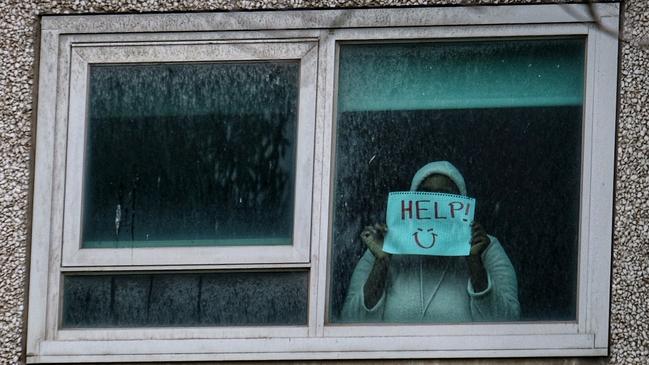
Under a grey winter sky, faces peer down from the square windows of nine housing commission towers in inner Melbourne as Victoria Police officers gather below.
With no warning, more than 3000 Melburnians on Saturday found themselves detained inside their homes in one of the most severe lockdown measures implemented in the world during the coronavirus pandemic.
On Sunday, residents stared at empty fridges and wondered when the care boxes promised by the government the day before would arrive.
At North Melbourne, a young woman held a white sign with red letters that said “Help”. A man yelled from the window of a neighbouring tower that he was hungry and needed food.
At Flemington, in a three-bedroom apartment shared with his wife and five children under the age of five, Abdi Ibrahim, 27, would wait almost a full day before someone knocked on his door to offer a coronavirus test.
“There’s no communication, there’s no one knocking on our door, there’s no one asking us what we need,” he said. “We are so isolated … it’s like a prison.”
Learning of the hard lockdown from the 6pm news on Saturday, Mr Ibrahim was forced to cancel a 5am shift at his casual job and left to wonder how he would feed his children, including seven-month-old twins.
“When you have five kids under the age of five, we need milk and baby formula,” he said. “What are we going to eat, what are we going to cook?”
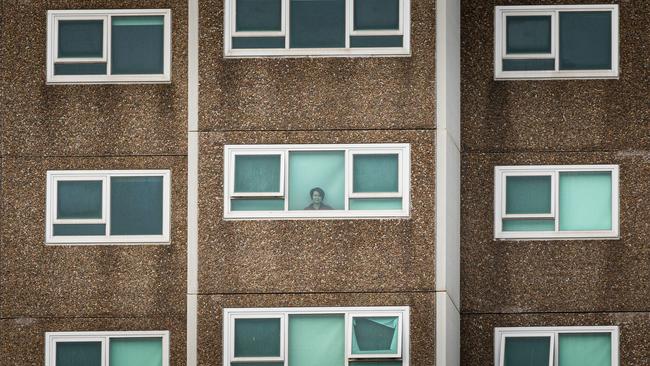
Unlike in the previous stage-three lockdown in which Victorians were allowed to leave their homes to purchase essential goods, exercise, work and study as well as for care and compassion reasons, the public housing residents are unable to leave their flats at all.
Victorian Premier Daniel Andrews said on Sunday that residents would be supplied with food and essentials as well as provided support with drug and alcohol addiction, mental health, family violence and physical healthcare.
Pet food would be supplied, as would be methadone for registered addicts.
“This is not going to be a pleasant experience for those residents but I have a message for those residents: this is not about punishment but protection,” Mr Andrews said.
“We cannot have this virus spread.”
One resident of a Flemington tower, who did not want to be identified, said she received a DHHS text less than an hour after Mr Andrews addressed the media on Saturday.
“I heard sirens so I looked outside the window and there’s about 10 police cars under one building and another 10 under our building and a drug bus for some reason,” she said.
“I was shocked. No other suburb has been treated with this kind of police presence.”
The text said: “If you live in North Melb/Flemington Estate you must not leave your home unless it’s an emergency. COVID testing will start now.”
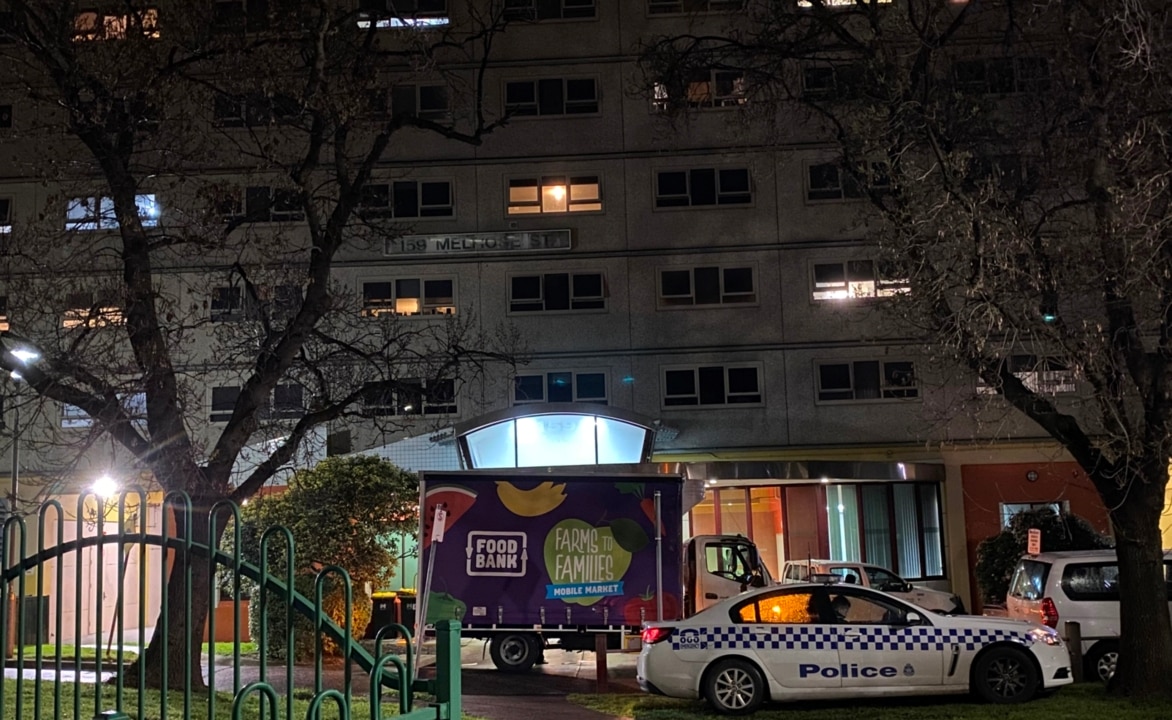
Youth leader Ahmed Hassan said the residents were largely migrants and refugees from countries in the Horn of Africa, including Eritrea, Ethiopia, and Somalia.
“They are already vulnerable, if not the most vulnerable in our state,” he said.
“They are struggling with a number of things in life and require a lot of support.”
The nine-tower lockdown was introduced to combat a rising number of cases of the coronavirus, with fears it would spread through the high-density community like wildfire.
Victorian Council of Social Service chief executive Emma King said it was vital local community organisations as well as social workers were allowed into the towers to help residents.
“It’s really important we have community at the forefront knowing that for some of the people who live in the towers, they’ve come from war-torn areas,” Ms King said.
“Watching that police response is going to be really challenging for them.”
In Flemington, a poster plastered in one window said: “Dictator Dan we are not criminals.
“This is classism, discrimination, martial law.”


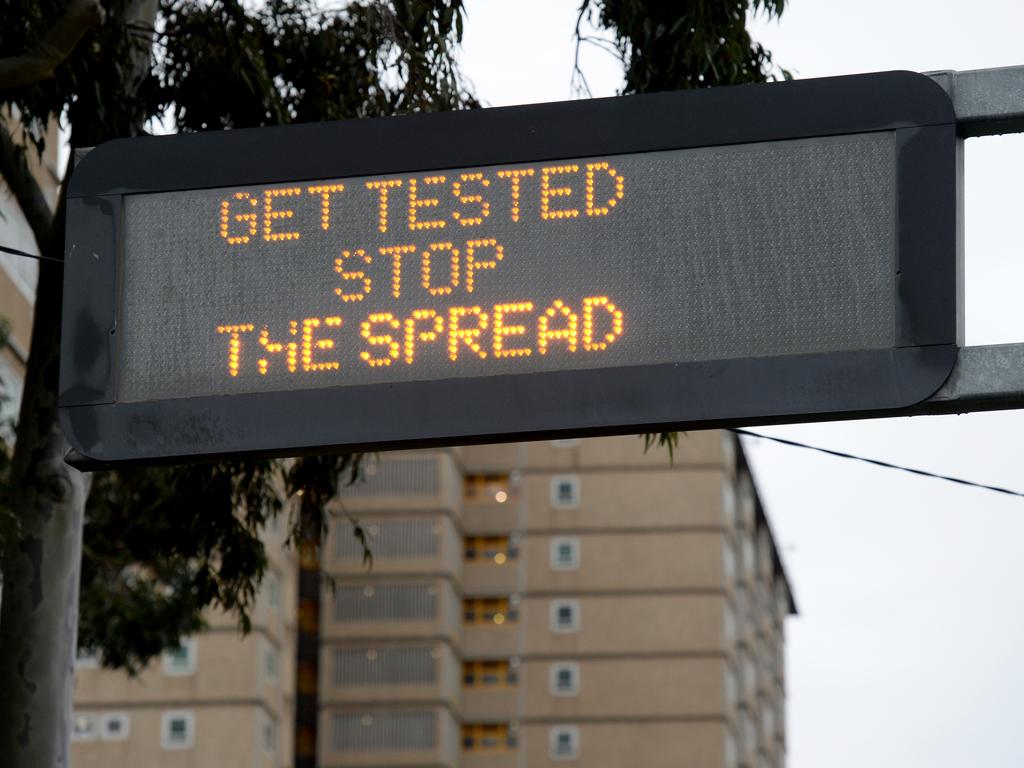
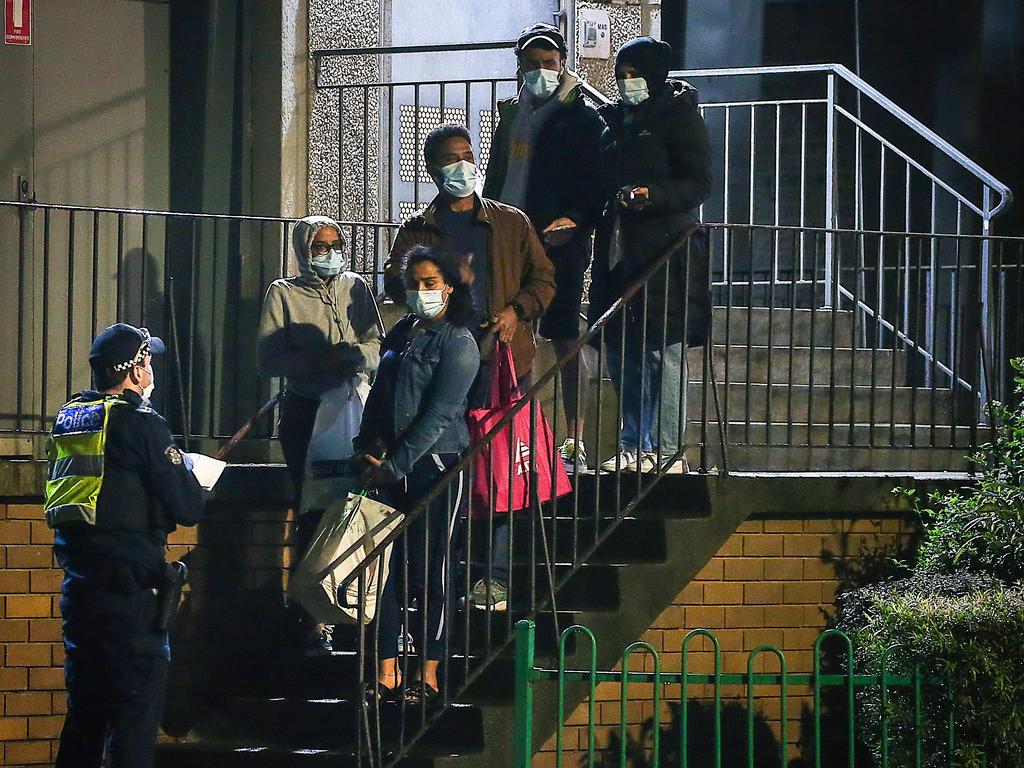




To join the conversation, please log in. Don't have an account? Register
Join the conversation, you are commenting as Logout